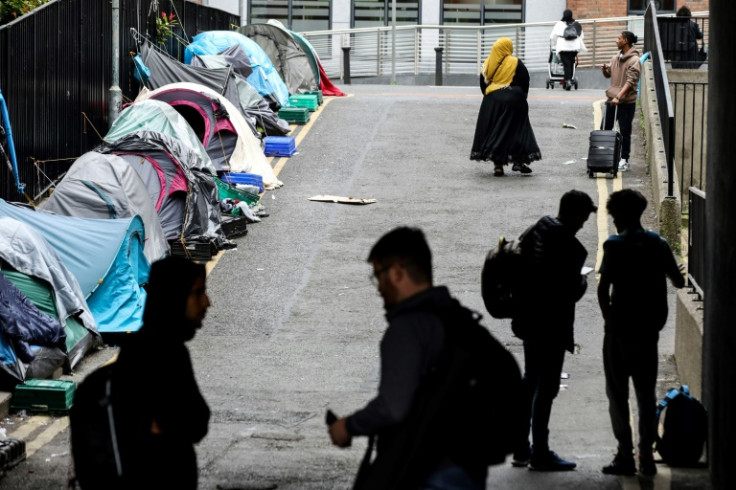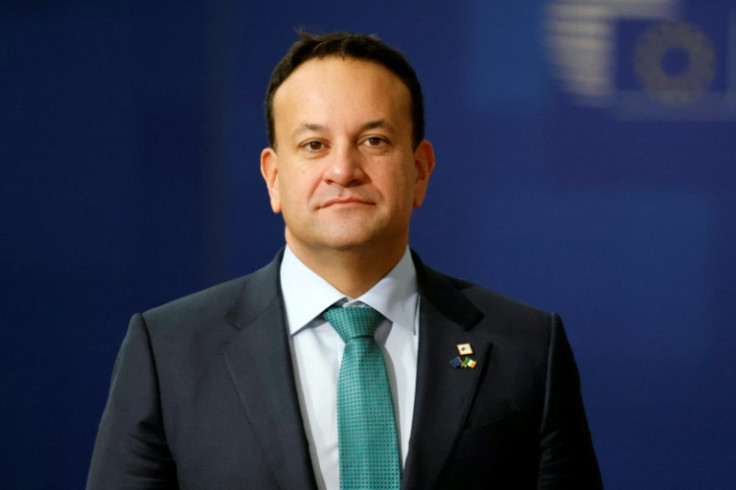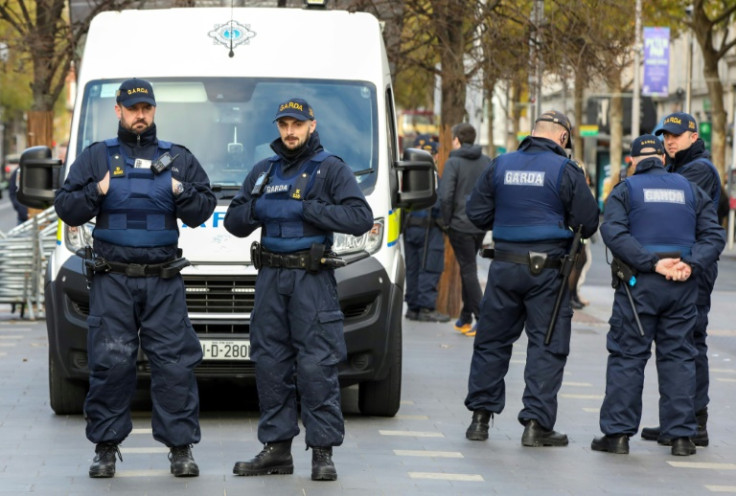Dublin Riot Highlights 'Far-right' Agitation Over Ireland Immigration
Riots in Dublin this week have highlighted growing social tensions in Ireland, with political leaders and others blaming far-right agitators for stoking unrest over increased immigration in recent years.

Riots in Dublin this week have highlighted growing social tensions in Ireland, with political leaders and others blaming far-right agitators for stoking unrest over increased immigration in recent years.
Ireland, which has historically been associated with huge emigration, has seen a dramatic rise in the number of asylum seekers, refugees and other arrivals amid the war in Ukraine and other global events.
The country's chronic affordable housing shortage, a cost-of-living crisis and the role of social media in amplifying disinformation have all been cited as helping to fuel right-wing hostility to the new residents.
The simmering situation erupted into violence on Thursday, when a mob of an estimated 500 people rampaged through central Dublin after three children were hospitalised over a knife attack outside a school.

The authorities say that unconfirmed reports circulating on social media that the stabbings were carried out by an "illegal immigrant" ultimately sparked the disorder.
For some familiar with the rising frictions, the hours-long riot, which saw looters burn vehicles, smash storefronts and attack police in the worst violence Dublin has experienced in decades, came as no surprise.
"I could see it coming two years ago, so I'm not shocked," Fergal McSkane, a social worker from a rural county just outside Dublin, told AFP.
The 40-year-old previously worked with refugees and said there was widespread disinformation within Irish society about the state benefits they receive.
"It's all driven by social media," he added, calling for more "dialogue and openness" from Ireland's political leaders, in particular about immigration.
Irish Prime Minister Leo Varadkar has said rioters "brought shame on Ireland" and that the violence "is not who we are".

"It's time we came together and reminded others who claim to speak for us about what our country really stands for," he implored on Friday.
"As a country we need to reclaim Ireland. We need to take it back from the cowards who hide behind masks and who try to terrify us with their violence."
However, reflecting on the unprecedented influx, the Irish leader in June noted that Ireland had "experienced a refugee crisis... the likes of which we've never experienced before and never imagined".
Nearly 100,000 Ukrainians have sought protection in Ireland since the start of last year under a refugee scheme, alongside a record 13,651 asylum claims from elsewhere in 2022.
Meanwhile, regular net migration in the year to April was 77,600 -- almost four times the figure for 2021, government statistics reveal.
In a country of just over five million residents, the numbers are unprecedented.
Accommodating the asylum seekers and refugees has become particularly contentious, with far-right elements using rallies and social media to air anti-immigrant sentiment that "Ireland is full".
After government accommodation became overwhelmed, a makeshift urban tent camp created by dozens of asylum seekers in Dublin became the focus of demonstrations earlier this year. A smaller nearby camp was attacked and tents burned.

Meanwhile rural areas, often near sites planned to house arrivals, have also seen protests.
Anne Holohan, an associate sociology professor at Trinity College Dublin, noted the demonstrations were not "a genuine, grassroots resistance to immigration".
"The vast majority of people in Ireland welcome immigrants and the benefits they are bringing to the Irish economy and society," she told AFP.
"But what has emerged in the last two to three years is a far-right movement that's using social media to spread disinformation and fear about immigrants, especially asylum seekers, and actively stokes tensions."
She called online platforms "the far right's literal secret weapon" and "a recipe for generating hate and fear that is invisible and unaccountable".
Ireland's Institute for Strategic Dialogue released new research on Monday detailing growing "far-right" influence in Ireland, both online and offline, including "incitement, falsehoods and hatred targeting migrant communities".
The institute's Aoife Gallagher said on Thursday's riot was "not surprising if you've been paying attention to how anti-immigrant sentiment has been exploding in this country" in recent years, especially 2023.
"The far right have been seizing on any incident of migrant crime to mobilise people and as soon as the news broke of the horrific attacks, they were organising around it," she explained.
Gallagher called the mob rampage "a story of failures" by police "to take the threat of the far right seriously" and by the government "to deal with the housing emergency facing this country".
She added that had helped create "the perfect environment to spread an 'us versus them' kind of sentiment against migrants".
© Copyright AFP 2024. All rights reserved.






